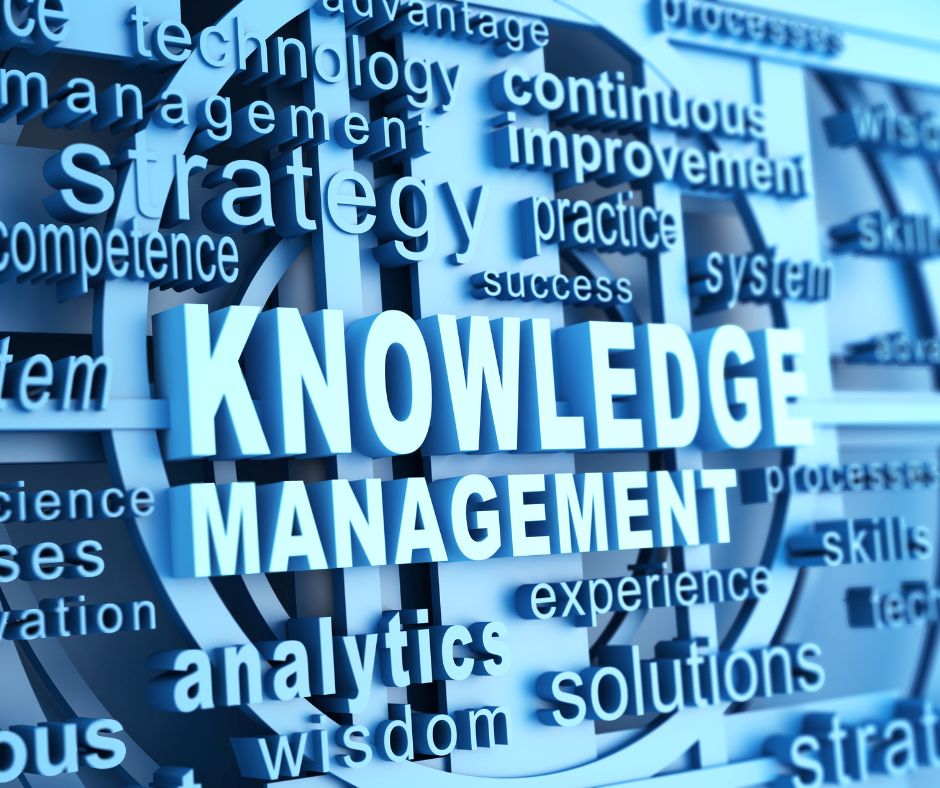
Knowledge is a priceless asset in both business and life. It's the driving force behind innovation, problem-solving, and personal growth. However, knowledge is only as valuable as its accessibility and utility. This is where knowledge management comes into play. In this blog post, we will delve into the world of knowledge management, exploring strategies that can help you organize, harness, and leverage knowledge effectively, both in your professional endeavors and daily life.
Knowledge management is the systematic process of creating, organizing, sharing, and applying knowledge to achieve organizational goals and personal objectives. It's about turning information into actionable insights and facilitating decision-making. Here's why knowledge management is crucial:
In the business world, making informed decisions is paramount. Effective knowledge management ensures that decision-makers have access to the right information at the right time. It minimizes the risk of making decisions based on incomplete or outdated data, thus improving the quality of choices made.
Innovation thrives on knowledge. By managing knowledge effectively, businesses can foster a culture of innovation, enabling them to stay competitive and adapt to changing market conditions. Similarly, individuals who manage their knowledge well can continuously learn and grow.
Whether you're tackling a complex business challenge or navigating the complexities of life, knowledge is your compass. Knowledge management helps you collect relevant information, identify patterns, and devise effective solutions to problems.
Managing your knowledge isn't just about optimizing your work processes; it's also about personal growth. By organizing and leveraging your knowledge, you can acquire new skills, expand your expertise, and achieve your goals.
Now that we understand the significance of knowledge management, let's explore strategies for organizing and leveraging knowledge in business and life:
Knowledge mapping is the process of visually representing the structure of your knowledge. It helps you identify what you know, how different pieces of information connect, and where there might be gaps. Start by creating a visual diagram or using knowledge management software to map out your knowledge domain. This can be particularly helpful in businesses to understand organizational knowledge assets.
In the digital age, we are inundated with information. Effective knowledge management involves curating information to extract valuable insights. Create a system for collecting and organizing relevant articles, reports, and data. Tools like RSS readers and content aggregators can help you filter and categorize information based on your interests and needs.
Both businesses and individuals generate a significant amount of documents and content. Implement a structured system for document and content management. Use descriptive file names, folders, and tags to make retrieval easy. In businesses, document management systems (DMS) can help streamline this process.
Knowledge is most valuable when shared. Encourage knowledge sharing within your organization or personal network. In businesses, this can be facilitated through intranet platforms, knowledge-sharing sessions, and collaborative tools. In your personal life, engage in discussions, write articles, or give presentations to share your knowledge with others.
Never stop learning. Allocate time for continuous learning and self-improvement. Whether it's through reading, online courses, or attending seminars, the act of acquiring new knowledge keeps your mind sharp and adaptable. Embrace a growth mindset that values learning as a lifelong pursuit.
Your network is a valuable source of knowledge. Cultivate relationships with individuals from diverse backgrounds and industries. Networking provides access to different perspectives and experiences, broadening your knowledge horizons.
Leverage knowledge management tools and technology to streamline your efforts. For businesses, this may include customer relationship management (CRM) systems, project management software, and data analytics tools. In your personal life, consider note-taking apps, task management tools, and personal knowledge management (PKM) systems.
Regularly review and reflect on your knowledge management processes. Identify what's working and what needs improvement. Adjust your strategies accordingly. Continuous improvement is key to staying effective in managing knowledge.
Let's consider a real-world example of how knowledge management can transform a business:
Company X, a tech startup, was experiencing difficulties in project execution. Teams often encountered the same challenges repeatedly, resulting in wasted time and resources. They decided to implement a knowledge management system.
1. Knowledge Mapping: The company began by creating a knowledge map that visualized the various areas of expertise within the organization, enabling them to identify knowledge gaps.
2. Information Curation: They implemented a system for curating industry reports, competitor analysis, and technical documents. This helped teams stay updated on market trends and competitor activities.
3. Document Management: Company X adopted a document management system to organize project documents, ensuring easy access and retrieval of critical information.
4. Knowledge Sharing: Regular knowledge-sharing sessions were initiated, where team members discussed project challenges and shared solutions. This improved cross-team collaboration.
5. Tools and Technology: They integrated project management software with their knowledge management system to track project progress and capture lessons learned.
6. Reflect and iterate: Company X continuously reviewed their knowledge management strategies, making adjustments based on feedback from teams.
The results were impressive. Company X saw a significant reduction in project delays, improved client satisfaction, and enhanced team morale. Knowledge management transformed their operations, making them more efficient and competitive.
Knowledge management is a powerful tool for individuals and businesses alike. By implementing effective strategies for organizing and leveraging knowledge, you can make better decisions, foster innovation, solve problems, and achieve personal and professional growth. Remember, knowledge is not static; it's a dynamic resource that evolves with time. Continuously invest in knowledge management to stay adaptable and thrive in an ever-changing world. Whether you're a business leader or an individual seeking personal growth, harness the power of knowledge management to unlock your full potential.
